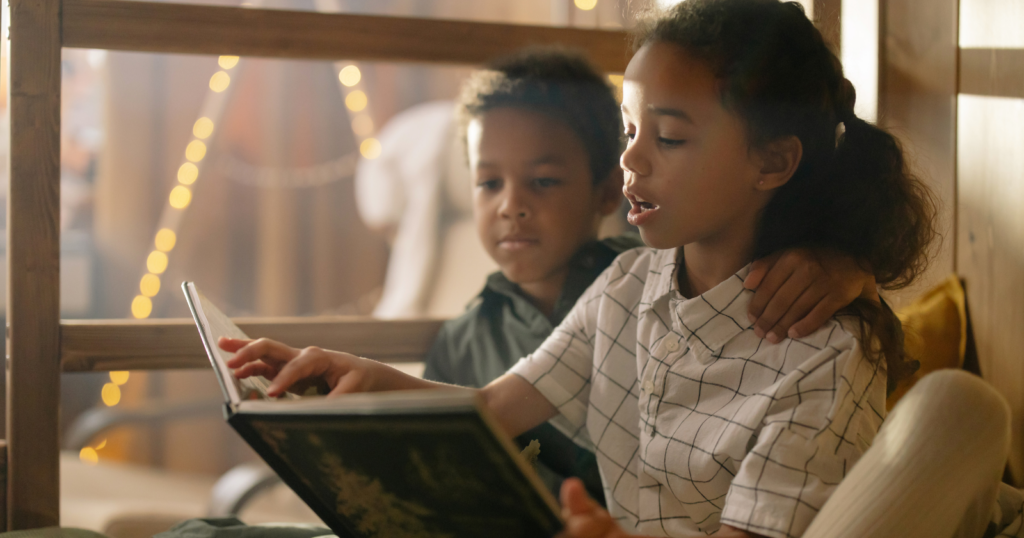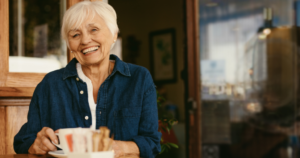If you grew up looking after younger siblings, chances are you didn’t really get a typical childhood.
You became a part-time parent before you were even old enough to drive. You knew how to make instant noodles by age 7, and by 10, you could soothe a toddler tantrum better than some adults.
It wasn’t always easy. And it likely shaped you more than you realize.
Now, years (maybe even decades) later, those early caregiving years still echo in how you show up—for others, and for yourself.
Let’s explore the quiet, often unspoken traits that many lifelong “big siblings” carry into adulthood.
1. You’re hyper-aware of everyone else’s needs
You notice when someone’s mood shifts—even slightly.
You can tell when someone’s hungry, tired, uncomfortable, or on the verge of tears—because you had to learn those cues young. You were wired early to scan the room, read energy, and step in when needed.
You do this without even thinking. And while it can be an incredible strength, it can also be draining if you forget to check in with your own needs, too.
2. You’re naturally responsible—even when it’s not your job
There’s a certain kind of adult who, when the Wi-Fi goes out at a friend’s place, automatically starts troubleshooting. When no one else remembers to book the reservation, they already did it last week.
That’s you.
Because when you’re the older sibling who grew up helping raise the little ones, being the “reliable one” isn’t a choice. It becomes a part of your identity.
You carry the weight even when no one asks you to.
3. You’re calm in chaos
I remember being at a dinner party years ago when a toddler tipped over a glass of red wine, burst into tears, and triggered a chain reaction of panic among the adults.
Except for one woman. She calmly walked over, scooped the toddler up, started humming, and waved off the mess like it was nothing.
Later, I found out she was the oldest of five.
That’s the thing—when you’ve handled midnight fevers, sibling squabbles, and last-minute diaper disasters before puberty, adult-level chaos doesn’t scare you. It’s familiar.
4. You tend to put yourself last
This one’s tough.
When you grow up putting others first, you don’t always know how—or even if—you should prioritize yourself.
You’re the one who lets people choose the restaurant. Who gives up the last slice. Who doesn’t say “I need a break” until you’re on the verge of burnout.
It’s not that you’re a martyr. You’ve just spent years in service-mode. Sometimes, you forget there’s another gear.
5. You have a soft spot for underdogs
People who’ve carried others often become the most compassionate among us.
You tend to be drawn to people who need help, support, or just someone who believes in them. You understand what it’s like to be needed—and you’ve learned how to be a safe place for others.
I’ve seen it time and time again. The woman who mentors the intern. The man who defends the quiet kid. The person who notices when someone’s being left out.
It’s second nature. You root for others because that’s who you’ve always been.
6. You struggle with asking for help
Let me guess—you’ll carry five grocery bags at once before you ask someone to grab one?
I’ve mentioned this in a previous post, but people who grow up in caretaker roles often have trouble receiving. They’re so used to being the helper that needing help feels unfamiliar… or even like failure.
But here’s the truth: strong people still need support. And allowing others to show up for you is a sign of trust—not weakness.
7. You’re fiercely protective of the people you love
You can joke with your siblings all day long—but let someone else say something cruel about them, and you’re instantly on alert.
That protective instinct doesn’t fade as you get older. If anything, it expands.
You’re the one making sure your friend gets home safe. The one double-checking that your partner packed a jacket. The one who remembers your co-worker has that scary dentist appointment tomorrow.
When you love someone, you carry them in small, invisible ways. Just like you did when you were younger.
8. You’re emotionally mature beyond your years
One of my friends, Anna, once told me that by the time she was 14, she knew how to handle her baby brother’s tantrums better than most adults.
It wasn’t because she wanted to grow up fast—it was because she had to.
Now in her forties, Anna’s still the one everyone calls when they’re overwhelmed. She listens without judgment, responds with clarity, and rarely loses her cool.
That kind of maturity doesn’t come from books. It comes from living life in the deep end early on.
9. You’re incredibly self-aware—but sometimes hard on yourself
Growing up as the responsible one usually means you became your own monitor.
You knew when to stay quiet, when to step in, when not to make things harder for your parents. And now? You often hold yourself to invisible, internal standards that no one else can see.
You beat yourself up for small mistakes. You worry about being “too much.” You don’t want to be a burden.
It’s admirable, but it can also weigh you down.
Sometimes, you just need to hear this: it’s okay to not have it all together. You’ve done more than enough.
10. You’re incredibly good in relationships—but often forget yourself in them
Romantic partners, friends, even colleagues—people love being around you.
You’re attentive, generous, emotionally intelligent. You remember birthdays. You bring the snacks. You notice when someone’s quiet and ask if they’re okay.
But here’s the catch: sometimes, you give so much that you forget to ask what you need.
I remember chatting with a woman at a café once—she was in her early thirties and mentioned she’d been the “second mom” to her three siblings growing up.
She said, “I love loving people. I just don’t know how to love myself without earning it.”
That stuck with me.
Because I think many eldest siblings feel that way—so good at showing up for others, but still learning how to show up for themselves.
Final thoughts
Here’s what I’ve come to recognize in people who spent their childhoods looking after others:
They carry a kind of strength that doesn’t need applause. They’re dependable in ways most people overlook. And they’re often the glue that holds things together without saying a word.
But here’s the thing—just because you learned to put others first doesn’t mean you have to keep doing it at your own expense.
If you grew up being the helper, the fixer, the “little adult” in the room… maybe now’s the time to ask yourself what it looks like to be cared for, too.
Because the skills you built were never the problem. The part that matters most now? Letting yourself need things. Letting yourself rest. Letting yourself be more than just useful.
You’re not just someone who knows how to show up for others—you deserve people who show up for you, too.
















